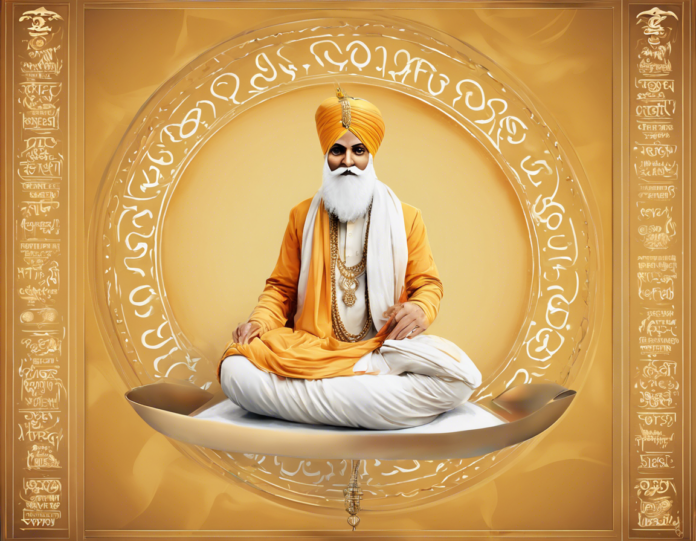Introduction
Gurpurab, also known as Guru Nanak Jayanti, is one of the most significant festivals in Sikhism. It commemorates the birth anniversary of Guru Nanak Dev Ji, the founder of Sikhism and the first of the ten Sikh Gurus. The word “Gurpurab” is derived from two words, “Gur,” which refers to the Guru or the spiritual teacher, and “Purab,” which means a special day. Every year, Gurpurab is celebrated with immense devotion and enthusiasm by Sikhs all around the world. It is a time for reflection, prayer, and spreading love and kindness.
The Significance of Gurpurab
Gurpurab holds immense significance in Sikhism as it marks the birth anniversary of Guru Nanak Dev Ji, who laid the foundation of Sikhism and preached the message of equality, compassion, and selfless service. The teachings of Guru Nanak Dev Ji, encapsulated in the Guru Granth Sahib, are timeless and universal, emphasizing the importance of meditation, honest living, and serving humanity.
Gurpurab Traditions and Customs
-
Nagar Kirtan: Gurpurab celebrations often begin with a Nagar Kirtan, which is a religious procession that involves singing hymns, chanting prayers, and carrying the Sikh holy book, Guru Granth Sahib, on a palanquin.
-
Gurbani Kirtan: Another integral part of Gurpurab celebrations is the performance of Gurbani Kirtan, which involves singing hymns and reciting verses from the Guru Granth Sahib in praise of the Guru.
-
Langar Seva: Serving langar, a communal meal prepared in the Gurdwara kitchen and served to all visitors irrespective of their caste, creed, or background, is a fundamental aspect of Gurpurab celebrations.
-
Katha and Katha Keertan: Katha refers to the recitation of stories and teachings from Sikh scriptures, while Katha Keertan involves singing hymns and narrating the life and teachings of Guru Nanak Dev Ji.
-
Akhand Path: Sikhs often organize an Akhand Path, a continuous reading of the Guru Granth Sahib, leading up to the Gurpurab to seek blessings and spiritual guidance.
Celebrating Gurpurab Around the World
Gurpurab is celebrated with great fervor not only in India but also in various other parts of the world where Sikh communities reside. Sikh temples, known as Gurdwaras, are beautifully decorated with lights and flowers, and special prayers and kirtan programs are organized to commemorate the occasion. Sikhs come together to participate in these festivities, seek spiritual solace, and strengthen their bonds of brotherhood and unity.
Frequently Asked Questions (FAQs)
- What is the history behind Gurpurab?
Gurpurab commemorates the birth anniversary of Guru Nanak Dev Ji, who was born in 1469 in Punjab, India. He founded Sikhism and emphasized the oneness of God, equality of all human beings, and selfless service.
- How is Gurpurab celebrated in Gurdwaras?
Gurpurab celebrations in Gurdwaras include kirtan, langar seva, ardas (prayer), and readings from the Guru Granth Sahib. Devotees offer their prayers and seek blessings from the Guru.
- Is Gurpurab a public holiday in India?
Yes, Gurpurab is a public holiday in India, particularly in the state of Punjab, where Sikhs form a significant portion of the population. Government offices, schools, and businesses remain closed on this day.
- What is the significance of Guru Granth Sahib on Gurpurab?
Guru Granth Sahib is the holiest scripture in Sikhism, and its presence is central to Gurpurab celebrations. Sikhs hold the Guru Granth Sahib in high reverence and seek spiritual guidance from its teachings.
- How do Sikhs prepare for Gurpurab at home?
Sikhs prepare for Gurpurab at home by cleaning and decorating their houses, engaging in prayers and kirtan, and partaking in community service and acts of charity to honor the teachings of Guru Nanak Dev Ji.
- Are non-Sikhs allowed to participate in Gurpurab celebrations?
Yes, Gurpurab celebrations are open to people of all faiths and backgrounds. Gurdwaras welcome and encourage everyone to join in the festivities, partake in langar, and experience the spirit of love and harmony.
- What are the key teachings of Guru Nanak Dev Ji that are emphasized during Gurpurab?
Guru Nanak Dev Ji’s teachings revolve around the concepts of Naam Japo (meditating on God’s name), Kirat Karo (earning an honest living), and Vand Chhako (sharing with others). These principles of spirituality, hard work, and selfless service hold profound relevance during Gurpurab.
- How does the Sikh community prepare for Gurpurab in advance?
In the weeks leading up to Gurpurab, the Sikh community engages in Nagar Kirtans, Akhand Paths, and community service activities to prepare spiritually and emotionally for the celebrations. The collective efforts foster unity and devotion among the community members.
- Are there any special dishes prepared during Gurpurab?
Yes, during Gurpurab, Sikhs prepare traditional dishes such as kada prasad (a sweet pudding made of wheat flour, sugar, and ghee) and langar seva meals that include dal, sabzi, roti, and kheer as a symbol of sharing and communal harmony.
-
How does Gurpurab promote unity and equality among Sikhs?
Gurpurab serves as a unifying force among Sikhs by bringing them together to celebrate their shared faith, values, and heritage. The egalitarian principles of Sikhism, espoused by Guru Nanak Dev Ji, promote equality, compassion, and social justice among all individuals regardless of their background.
Gurpurab is not just a festival for Sikhs; it is a time to reflect on the teachings of Guru Nanak Dev Ji, embrace the values of Sikhism, and spread the message of love, peace, and harmony. Through prayers, service, and togetherness, Gurpurab reinforces the timeless principles of Sikh philosophy and strengthens the bonds of the Sikh community worldwide.

